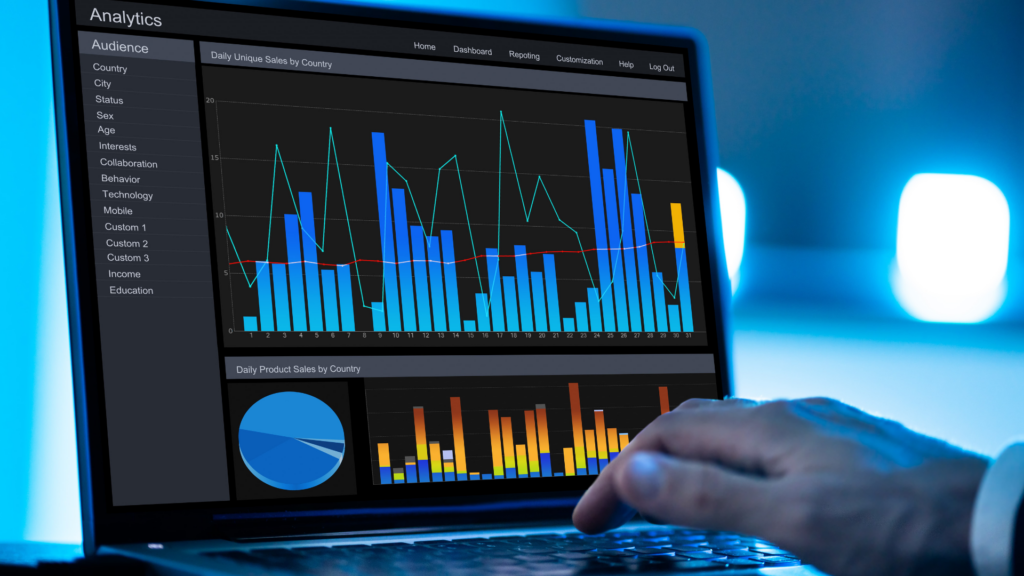
Which tags are standard google analytics campaign parameters?
Are you constantly analyzing your website traffic but are unsure which tags to use for your Google Analytics Campaign Parameters? As a business owner, it can be overwhelming to keep track of all the digital marketing tools that can affect your online presence. But worry not, you have come to the right place! In this blog post, we will unlock the mystery of standard Google Analytics Campaign Parameters and provide you with the most effective tips to take your marketing strategy to new heights!
First and foremost, let us clear the air about what Google Analytics Campaign Parameters are. These tags are additional pieces of information that attach to your website’s URL link, allowing you to track your web traffic’s behavior and analyze patterns. However, with so many different parameters to choose from, which ones are considered standard among marketers?
The following five tags are generally considered standard when creating Google Analytics Campaign Parameters:
1) utm_source – This tag indicates where the traffic is coming from, i.e., Facebook, Twitter, etc.
2) utm_medium – This tag refers to the method of delivery, i.e., display, email, or cpc.
3) utm_campaign – This tag highlights the specific marketing campaign that led to the user’s site visit.
4) utm_term – This tag is used in paid search, highlighting the specific keyword that led the user to your website.
5) utm_content – This tag is used for A/B testing purposes to highlight different variations of the same ad.
When it comes to implementing these tags, it’s essential to ensure that they are entered correctly and consistently across all marketing campaigns to avoid any confusion in data interpretation.
Another critical factor to consider is the best practices when using these parameters. Following these tips will ensure that you get the most out of your Google Analytics Campaign Parameters:
1) Keep all tags brief – Stick to a maximum of 50 characters per tag and focus on keywords that best describe the parameter.
2) Avoid using capital letters – Google Analytics is case-sensitive, so using capital letters or special characters can lead to confusion and generate faulty data.
3) Be consistent – Ensure that you are using the same parameters for the same campaigns across all platforms, as this will allow for easier comparison and analysis.
4) Be relevant – Ensure that your tags are targeted and relevant to your audience, as this will lead to better analysis and more informed decisions.
Conclusion:
In conclusion, understanding which tags are standard for Google Analytics Campaign Parameters can significantly impact your web traffic analysis, positively influencing your marketing strategy. By sticking to the five standard parameters and following the best practices outlined in this post, you will be well on your way to creating a successful digital marketing campaign that maximizes your website’s potential. So what are you waiting for? Start incorporating these tips today and reach new heights in your digital marketing efforts!
Leave a Reply
- AI in Diagnostics: Revolutionizing Early Detection and Accuracy
- How AI and Advanced Analytics Are Transforming Healthcare Outcomes
- Investing with Confidence: The Role of ROI Calculators
- How ROI Calculators Drive Data-Driven Business Strategies
- The Ultimate Guide to ROI Calculators for Business Success
- Making Sense of ROI Calculators: A Comprehensive Guide
- June 2025 (1)
- May 2025 (1)
- October 2024 (2)
- September 2024 (31)
- August 2024 (31)
- July 2024 (27)
- June 2024 (28)
- May 2024 (30)
- April 2024 (33)
- March 2024 (23)
- February 2024 (29)
- January 2024 (3)
- December 2023 (47)
- November 2023 (36)
- October 2023 (23)
- September 2023 (2)
- June 2023 (2)
- May 2023 (13)
- April 2023 (1)




